God of War Ragnarok: A Place Where Your Father Loves You!
If video games were High Art, could we tolerate them?
How can I resist breaking down the story of God of War Ragnarok? (GoWR from here on.) It's the biggest example of video game storytelling in quite some time. A lot of people have played it. It was intensely awaited.
It was also ... ummmm ... a little shaky.
As I said in my last GoWR piece (which got quite a lot of reads), it's kind of futile to critique big AAA games. They made their money. They got their acclaim. Everyone has moved on. It’s likely that if anyone who worked on GoWR reads this, they’ll leave the industry soon, because who isn't?
As many have observed, the story is really flawed. When a game is as big as this one, it's good to pick apart what made it work or not, if only for due diligence.
The Question of Games As Art
Video games, as an art form, are a tug of war between two factions.
On one end: Video games tend to work best as a power fantasy, a source of emotional pleasure and fulfillment for the player.
On the other end: Some dream of video games as High Art. By this, I mean works that communicate truth about what it means to be a human, even if these truths are sad and painful.
(Some also dream of using video games for political commentary. Which is easy to do and mainly results in, well, more political commentary. Sure. Because we don't get enough of that!)
The story in GoWR fascinates me because it is stuck in the middle of these two opposing factions. This game needs to be wish-fulfillment power fantasy. If it wasn't, we couldn't stand it and it wouldn’t sell.
Let's start with the basics.
The Story So Far
The God of War in God of War is Kratos. In the old games, he got angry at the Greek Gods and killed them all.
In the 2018 God of War, he is in Norseland. Kratos’ wife is dead, and he has a weenie son named Atreus. You play Kratos. The Norse gods are hunting you down. As you run for your life, Atreus gets increasingly angry and unhinged. At the end of the game, you learn his real name: Loki.
In Norse mythology, Loki is the malevolent trickster who brings about Ragnarok, the end of the world and suffers his own tragic, miserable end. So the setup for GoWR was really amazing, especially since the God of War games have a history of being tragic misery wallows.
Seriously, imagine a trilogy about Loki growing up, accepting his divine nature and an agent of chaos, and unleashing his power to get vengeance on the Norse gods, erasing them from the world. This could have been terrific and exciting and true to all of the sources it draws from.
Instead, the series ended up being awkwardly chopped off at two games, and the ending was determined to Subvert Your Expectations (tm). It ended up being a fairly wimpy piece of writing. Most of the gods have tidy happy endings, and, if it’s just going to be generic feel-good piece, that’s fine, but then it’s not God of War anymore.
I was going to write a whole piece about how weirdly structured this game is. Characters that appear and vanish with no purpose. Whole long storylines that make no sense and no difference. The whole bizarre, meaningless mask quest. The totally rushed ending. The way Ragnarok, instead of an irresistable force symbolizing the inevitability of death, is now just some big glowy monster you have to hit once. I’m not going to write that.
They wrote the game to turn it into a TV series. They got their wish. I wish a happy life in West Hollywood to them all.
I don't want to fixate on negatives and might-have-beens. In this piece, I want to focus on the best part of the new story ...
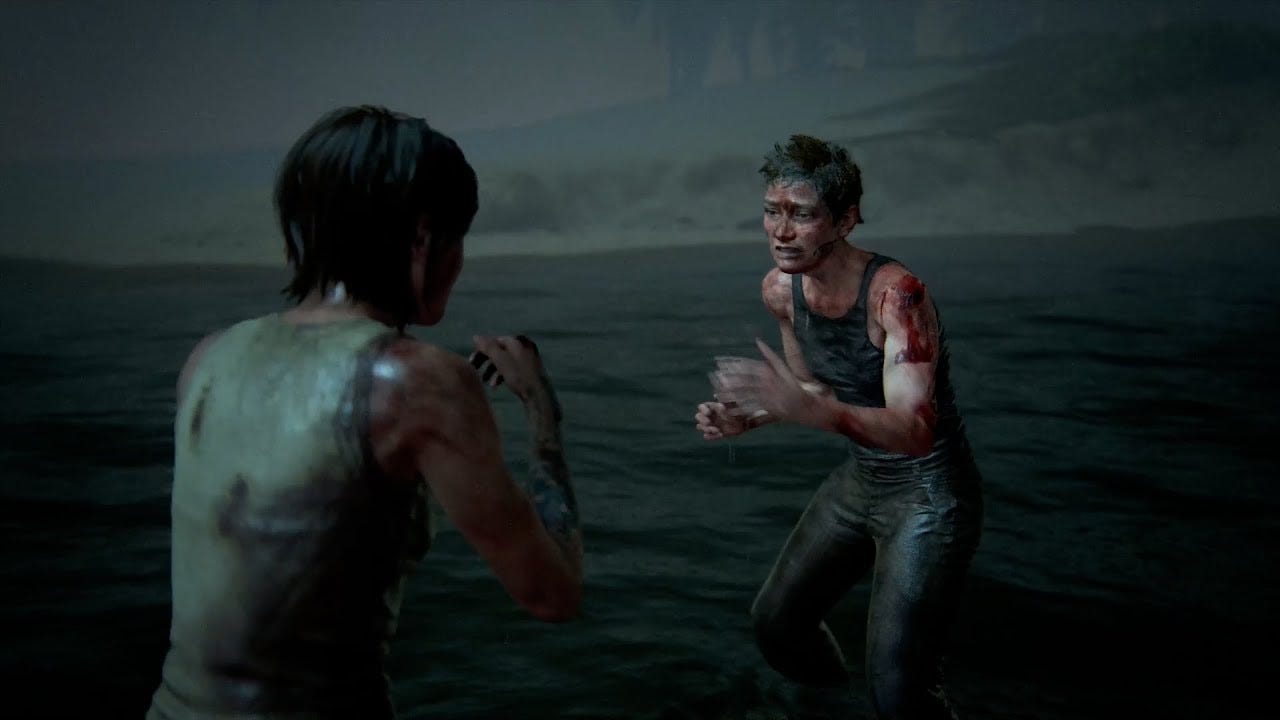
What Worked.
Kratos, God of War, utterly eliminated the pantheon of Greek Gods. You know how nobody worships the Greek Gods anymore? Now you know why.
In the new series, Kratos is ventilating the Norse gods. In the 2018 game, the emotional focus was on the relationship between the harsh, remote Kratos and the young, immature, eager-to-prove-himself Loki. They try to work together and understand each other while mourning Loki's recently-deceased mother. It was very affecting and well-written.
God of War performed the remarkable trick of seeking out people who have troubled relationships with their fathers (these days, nearly everyone), putting chisels in the cracks in their psyches, and splitting their heads open. It was quite effective and gave the earlier God of War a powerful and earned emotional resonance.
It's Still God of War: Daddy Issues
GoWR continues this, but Atreus/Loki is a teenager now. All of the daddy-son difficulties come along. They're rewarmed material from the previous game, somewhat one-note in the new game, but still effective.
At the end, Kratos finally sheds his gruffness and becomes the huggy, sensitive dad the audience wanted him to become. It's very sweet. It's enough to warm the heart of anyone who hasn't been worn down into an incurable crank.
But I AM a crank.
The Tricky Business About the Thing
Kratos is violent, closed-off, and remote, and he has been so for centuries. Loki is immature and hungry for validation and revenge.
So.
How do you end this story? How CAN you end this story?
Think about it. There are two ways this can go. Kratos turns into what the audience wants him to, or he doesn't. He becomes a loving model dad (happy!), or he doesn't change (sad!).
Some want to think of video games as not just good fun and power fantasies, but High Art as well. The problem is that this is a 40 hour action game that wants (needs!) to make a bajillion dollars.
Movies can get away with being sad and still make a lot of money, because they're short, and you just watch them. But video games? They are far more constrained.
You can put a lot of sad stuff in a big-budget video game. Yet, I believe that watching a father truly neglect his son over the length of a full game would be too painful for the target audience. It would be rejected.
The Business of Games Is Power Fantasies
I've been writing a lot lately about how video games trade in making the player feel powerful and satisfied. There is nothing wrong with this. Life is hard, and if you sink 40 hours of your limited free time into GoWR, you should walk away feeling satisfied.
I can't honestly ask for anything else. It would be cruel.
But ... The resolution of Kratos and Loki isn't entirely honest, is it?
In my long observation, people rarely change. When they do change, it often isn't for the better.
(For a different, harder, truer take on this material, I strongly recommend the excellent movie Fences. I loved this movie, but you couldn't stand it being 40 hours long. It would kill you.)
When your parents are distant, for whatever reason, they tend to stay distant. This is the reality of aging. People often get more remote and strange as they get old, not less. Sometimes, when the kids are grown, their parents look back realize the mistakes they made with them and feel bad. Too late.
But this is how all things are for all of humanity. Humans are flawed. We will all be flawed always. Being a person means forgiving people for their flaws and finding ways to care and love despite them. Art, at its best, dives into this hard, complex reality.
The Crack Between Games and Art
Kratos has his gruff and angry moments, but he always quickly returns to being sensitive and huggy to Atreus. This is a Power Fantasy.
Why? Because in this situation, more players are likely to identify with Atreus. Kratos, the most firm and immovable of beings, reshapes himself to satisfy the wishes and needs of Atreus.
For the game to work, Kratos MUST become what WE want. Thus, we have power.
But That's Not How Art Works
Art, at its best, is about truth, revealing how humans are, flaws and all. Sometimes, your protagonist is unlikeable. In a movie, this can be ok, though some people hate it. In a video game, which is much longer and you are supposedly controlling the protagonist, it’s much harder.
Sometimes, people aren't likable. Yet, if you are going to spend 40 hours playing a character, that character better be at least a little likable, or you won't be able to stand playing them. Also, if you spend all that time taking a person you don't like and making that person successful, you won't feel good about yourself.
The Grand Theft Auto games have unlikeable protagonists, and they are enormously successful. However, most games don’t want to be Grand Theft Auto.
This is why Video Games will always fight with High Art. Games must be long enough to feel worth it. They must provide the feelings of power and affirmation we crave. Thus, they can never be fully honest.
Video Games Can Have Unhappy Endings
It would, of course, be foolish for me to say a successful video game has to have a happy ending. There are plenty of cases where this isn’t true. In fact, if your game is 50 hours of righteous ass-kicking, a sad ending can make it even more satisfying. It adds an artistic patina to all those hours of joyful, violent awesomeness.
However, while a game can have a sad ending, you can end up in trouble fast if it has a sad beginning or middle. Long periods of relentless trauma are not what game customers get on board for. If you are taking this route, you better be making something like The Last of Us 2, a guaranteed success sequel to a hit title. And you’ll still be losing a bunch of customers.
There Is, Of Course, a Place For Honesty In Video Games
Mainly indie games that last less than 3 hours. And, even then, if your game is a bummer, don't expect it to get good reviews and word of mouth. Or sales. I mean, they'll sell good for an indie game. And that's all.
This Is the Sort of Blog Post That Makes People Mad
Some people are very invested in video games being High Art. Anything that suggests that they are less or that it's OK for them to have other goals annoys them.
Some people get quite irked when there is a work of pop art they love and speaks to them and some rando suggests there are other worthy goals that could have been pursued.
I describe myself as a crank a lot. But honestly, I'm not. I'm a basically cheery person who tries very hard to find something to like in everything they experience.
The truth is, most works of art aren't perfect and they aren't completely horrible. Most works of art are Fine. Just Fine. And that's ok. It's fine to be Fine.
The father-son fantasy of GoWR is the thing that works, even if it strikes me as false. If it made you feel better, I'm glad you got your money's worth.
It took me a long time to post this because I don’t think it’s very good, but I had to get rid of it before I could bring myself to write something else. Sorry. Subscribing is always free and gets my ramblings sent straight into your inbox. Spiderweb Software also has a mailing list if you want to learn when we do something big.
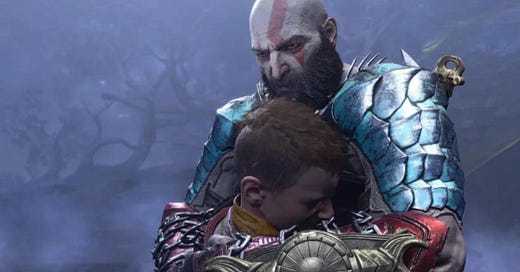



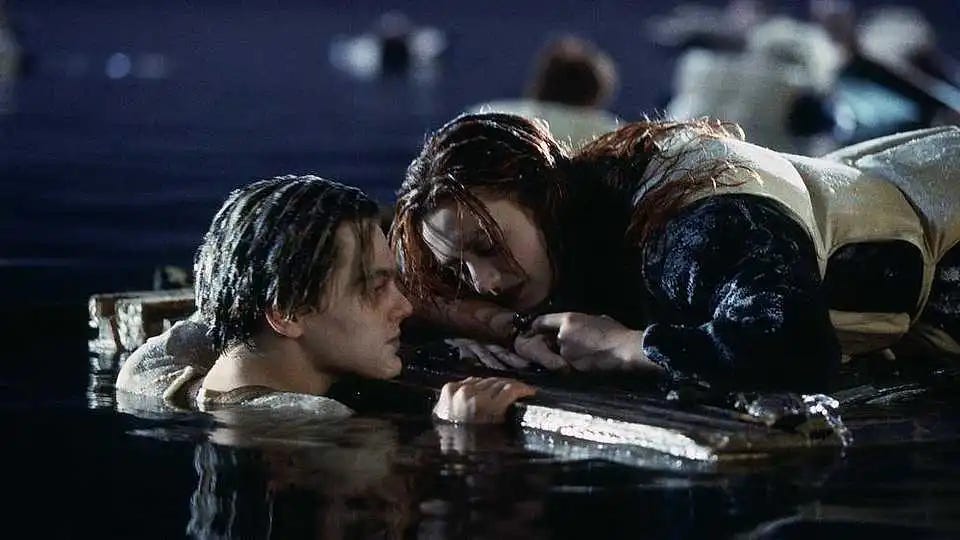
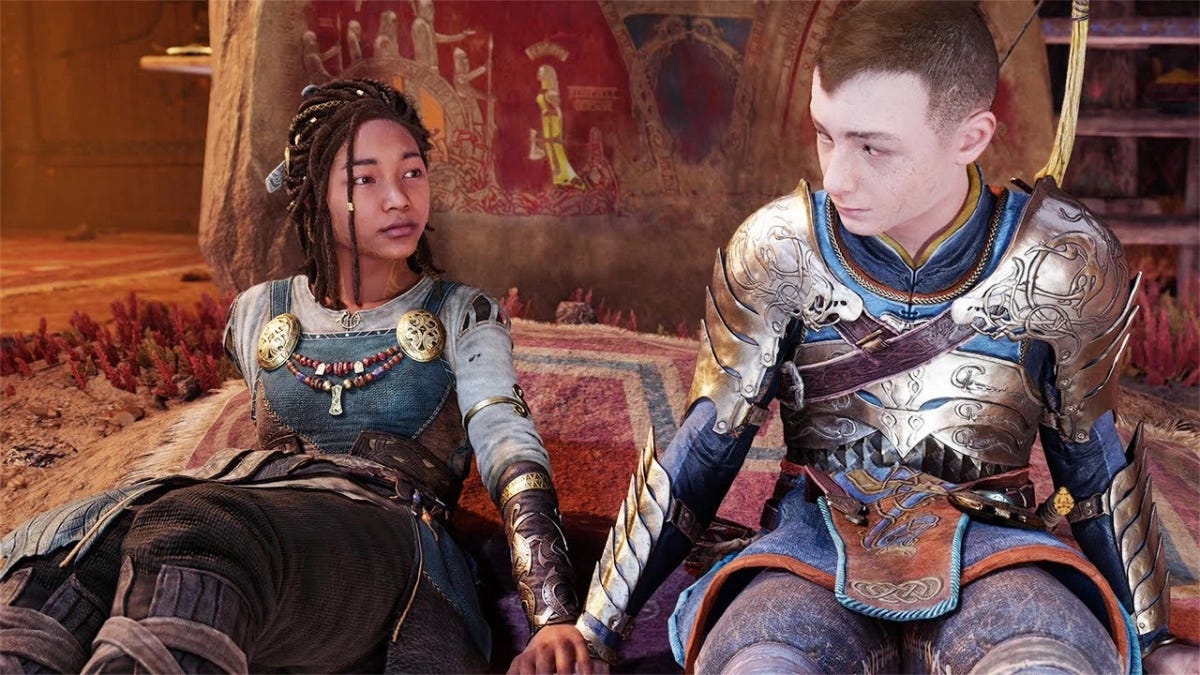
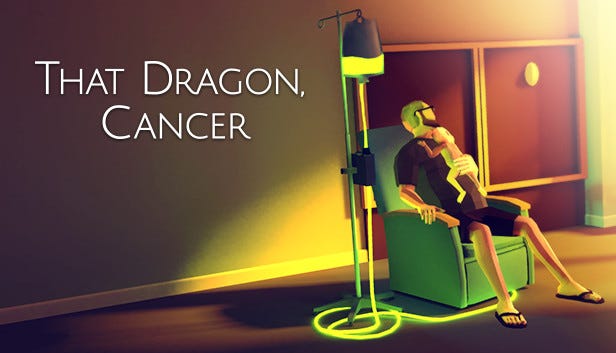
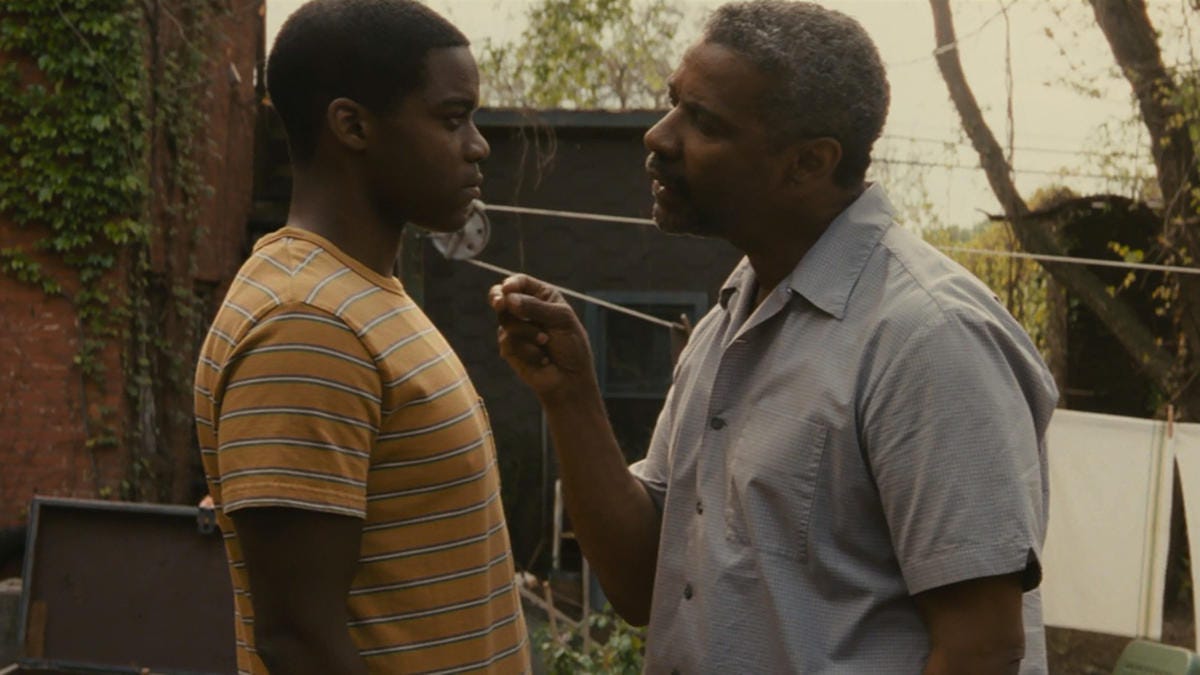
"In 2016, humanity reached peak Sad Video Game. I think it will never be equaled."
You should not challenge the Devil like that!
"When your parents are distant, for whatever reason, they tend to stay distant. This is the reality of aging. People often get more remote and strange as they get old, not less.".
Sadly true.
My father always been a distant person, as he got older, it really doesnt feel much different. He married and divorced several times so go figure.